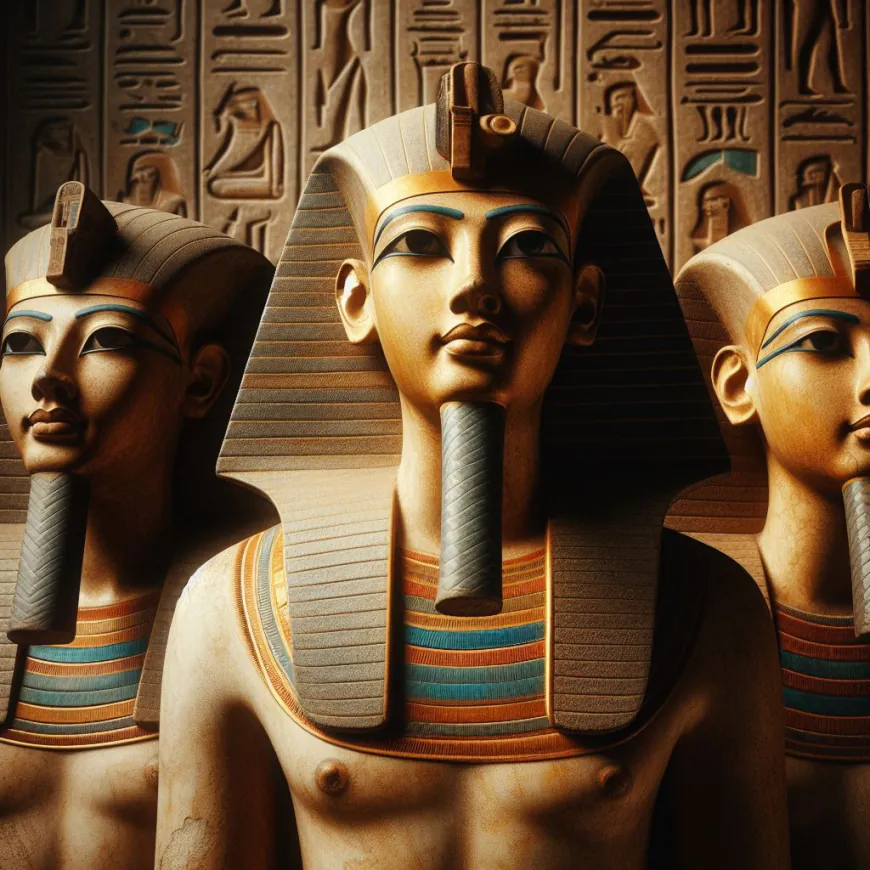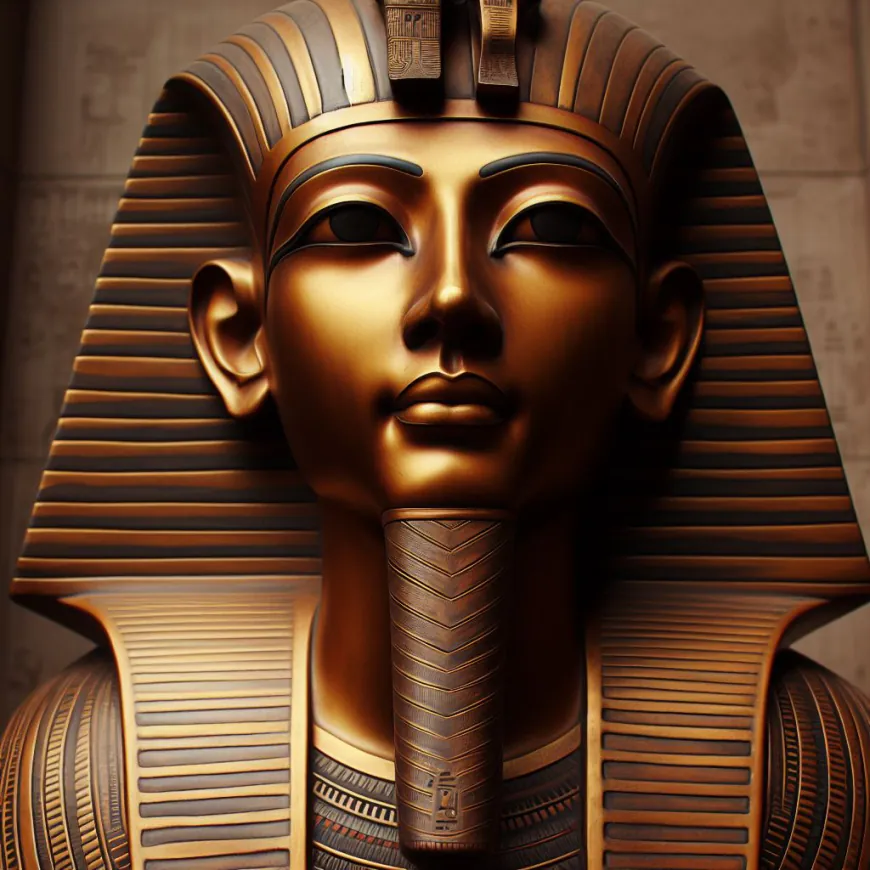Why Do The Pharaohs Have Such Long Chins In All Their Statues?
Why did pharaohs sport elongated chins? Explore the cultural significance behind their distinctive statues.

Why Did Ancient Egyptian Pharaohs Sport Elongated Chins in Their Statues?
Introduction
When we gaze upon the majestic statues of ancient Egyptian pharaohs, one striking feature often captures our attention: their elongated chins. These rulers, who held immense power and divine status, were immortalized in stone with exaggerated facial features. But why did the pharaohs choose to depict themselves this way? What symbolism lay behind these distinctive chins? In this article, we delve into the fascinating world of ancient Egypt to unravel the mystery of the pharaohs’ elongated jawlines.

Appreciation of Beards in Ancient Egypt
Facial hair in ancient Egypt experienced its own ebb and flow throughout the ages. While beards were common among men during the pre-dynastic era, they gradually fell out of favor as the early dynastic period dawned. Shaven faces became the prevailing trend, both among the aristocracy and everyday citizens. However, one notable exception persisted: the pharaohs.
Beards and Godliness
The pharaohs, regardless of their gender, donned artificial beards for a specific purpose: to connect themselves with the divine. These false beards were braided tightly, a style believed to be especially godly. The primary material for these beards was goat hair, and they were typically thin at the top and broader toward the chin. When pharaohs wore these beards during ceremonies, they aimed to express their importance and divine ranking.
Sign of Masculinity and Authority
Beards in ancient Egypt symbolized more than just aesthetics. They were closely linked to qualities such as mightiness, manliness, and male fertility. The pharaohs believed that beards conveyed intelligence and experience due to age, making them essential for their regal appearance. A ruler’s elongated chin signified not only their authority but also their connection to the gods.
Reason for False Beards
Curiously, ancient Egyptian men could have grown authentic beards, yet they opted for artificial ones. Why? Hygiene played a crucial role. Thick mustaches, beards, and eyebrows were considered signs of uncleanliness. The Egyptians meticulously maintained their appearance, keeping their faces mostly hair-free. Authentic beards might have been prone to dirt and pests, whereas false beards allowed for cleanliness and ease of maintenance.
False Beards in Death
When pharaohs passed away, they were often portrayed as Osiris, the god associated with death and the afterlife. Emulating Osiris’s beard was part of this ritual. The false beards adorned the coffins of the pharaohs, as these coffins frequently featured illustrations of their faces. The slight curling at the tip of Osiris’s beard became a symbol of transition from earthly life to the eternal realm.
Conclusion
The elongated chins of ancient Egyptian pharaohs were not mere artistic quirks; they carried profound meaning. These false beards bridged the gap between mortal rulers and the divine, emphasizing their authority, wisdom, and connection to the gods. So, the next time you encounter a statue of a pharaoh with an elongated chin, remember that it represents more than just a stylistic choice—it embodies a rich tapestry of cultural beliefs and spiritual significance.
What's Your Reaction?







































